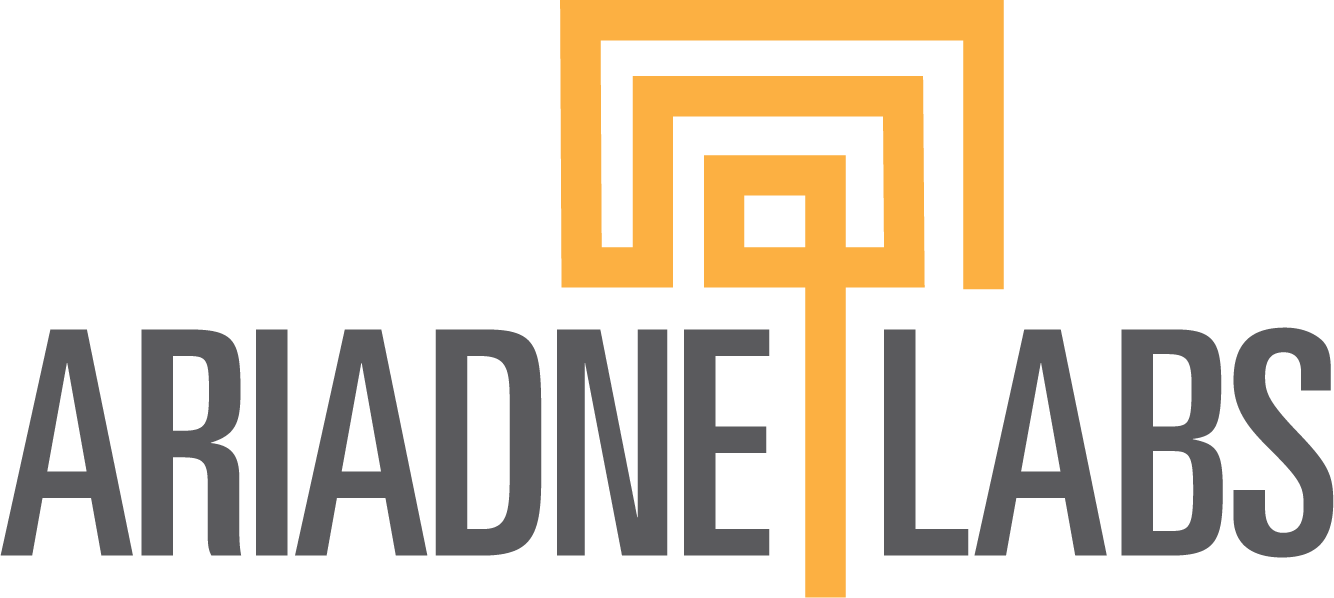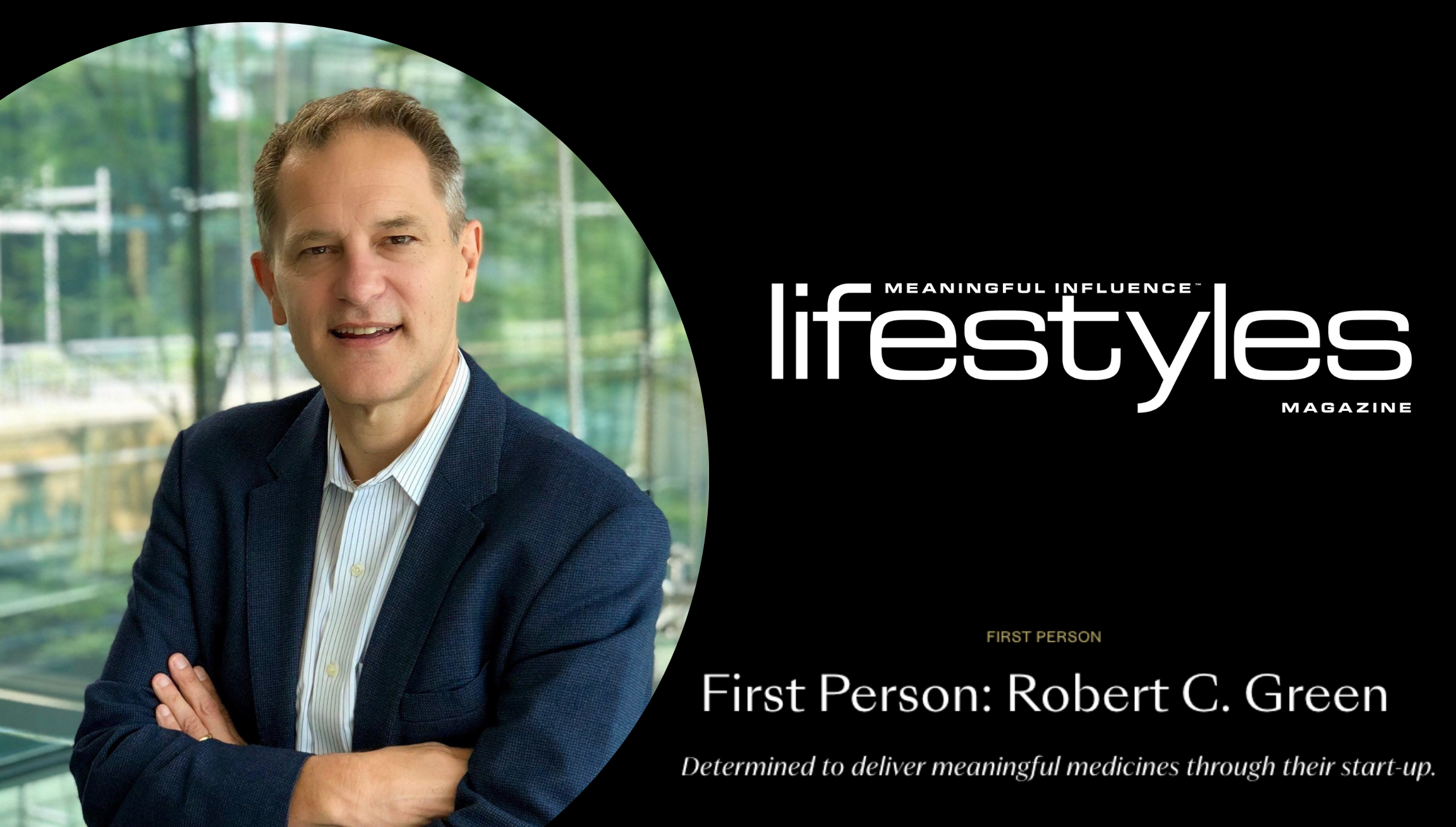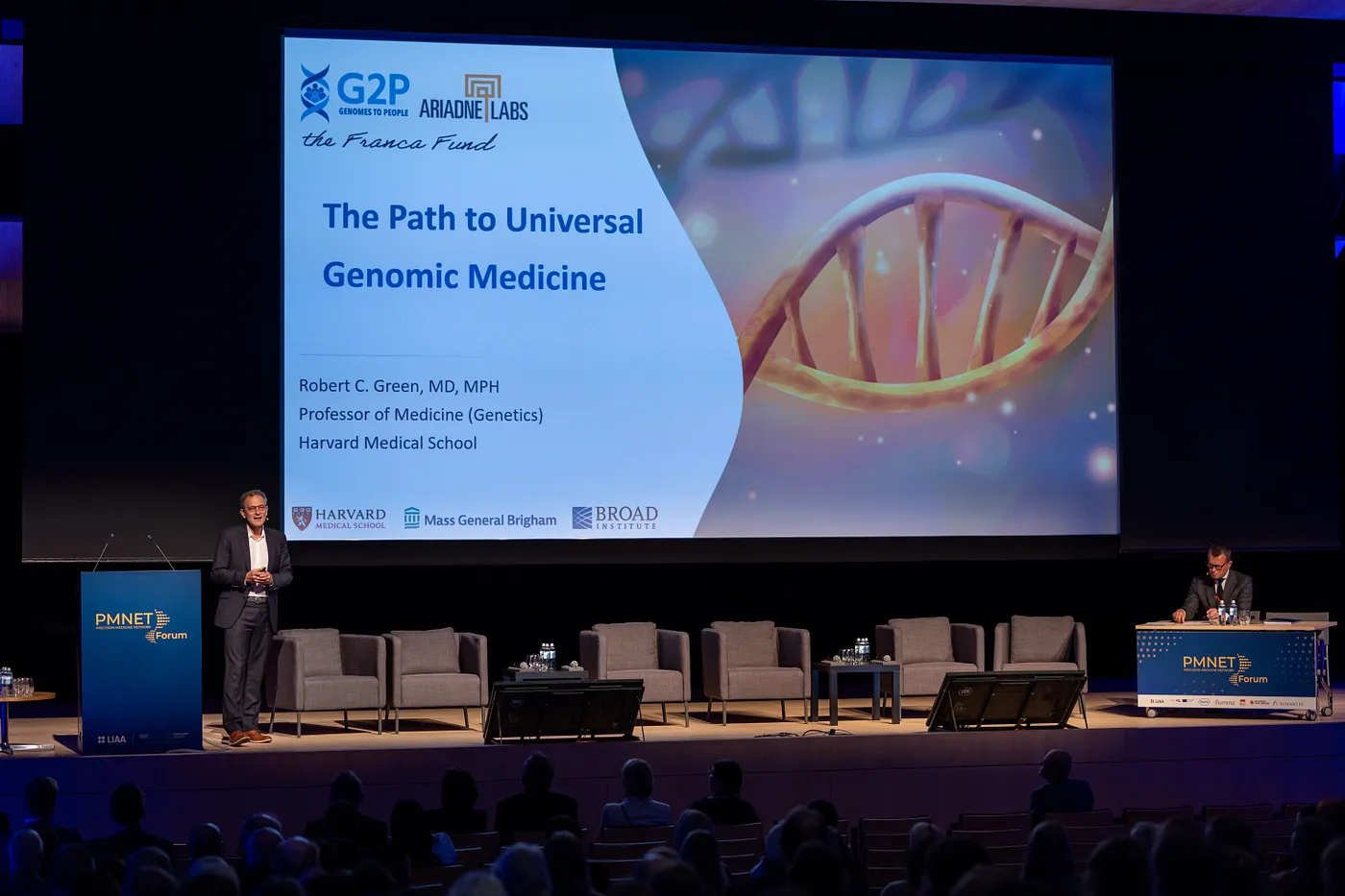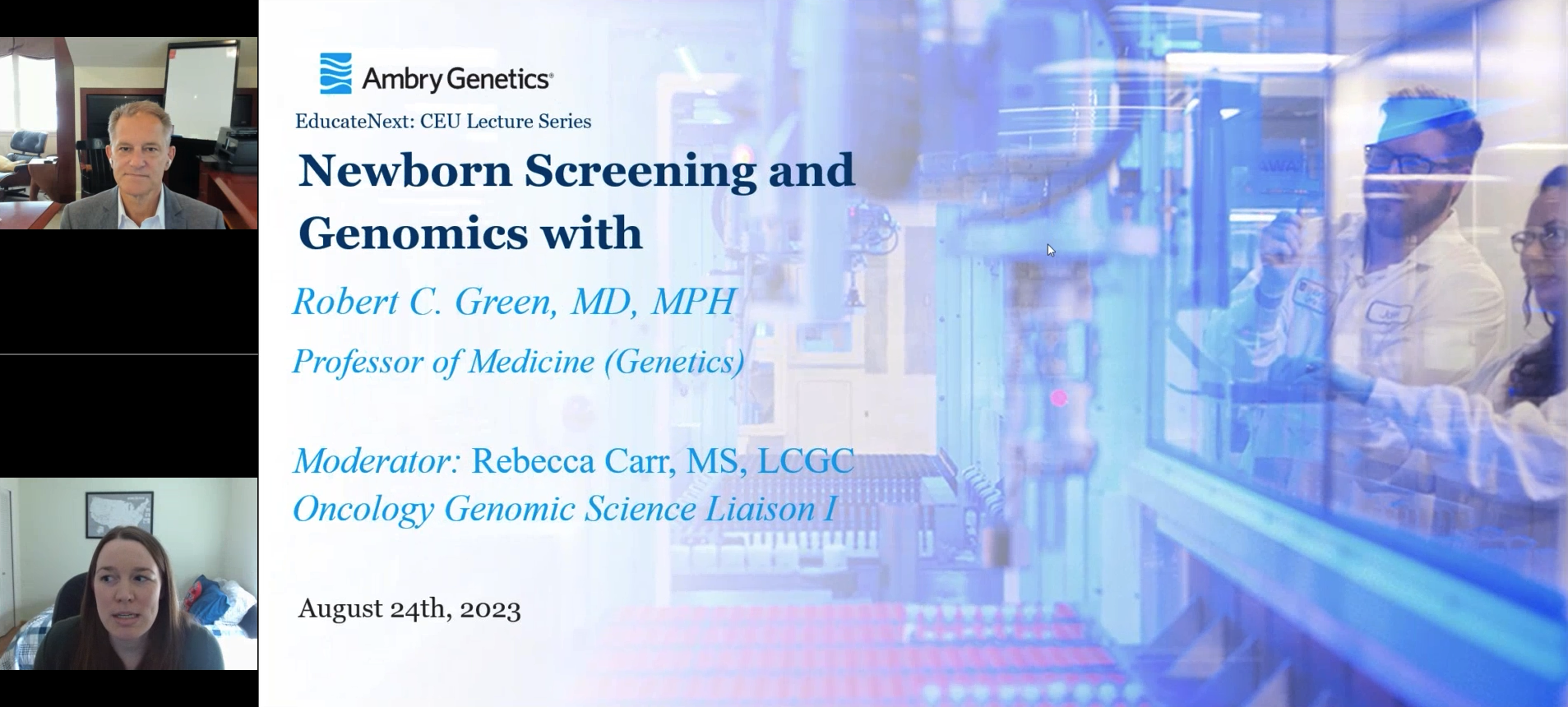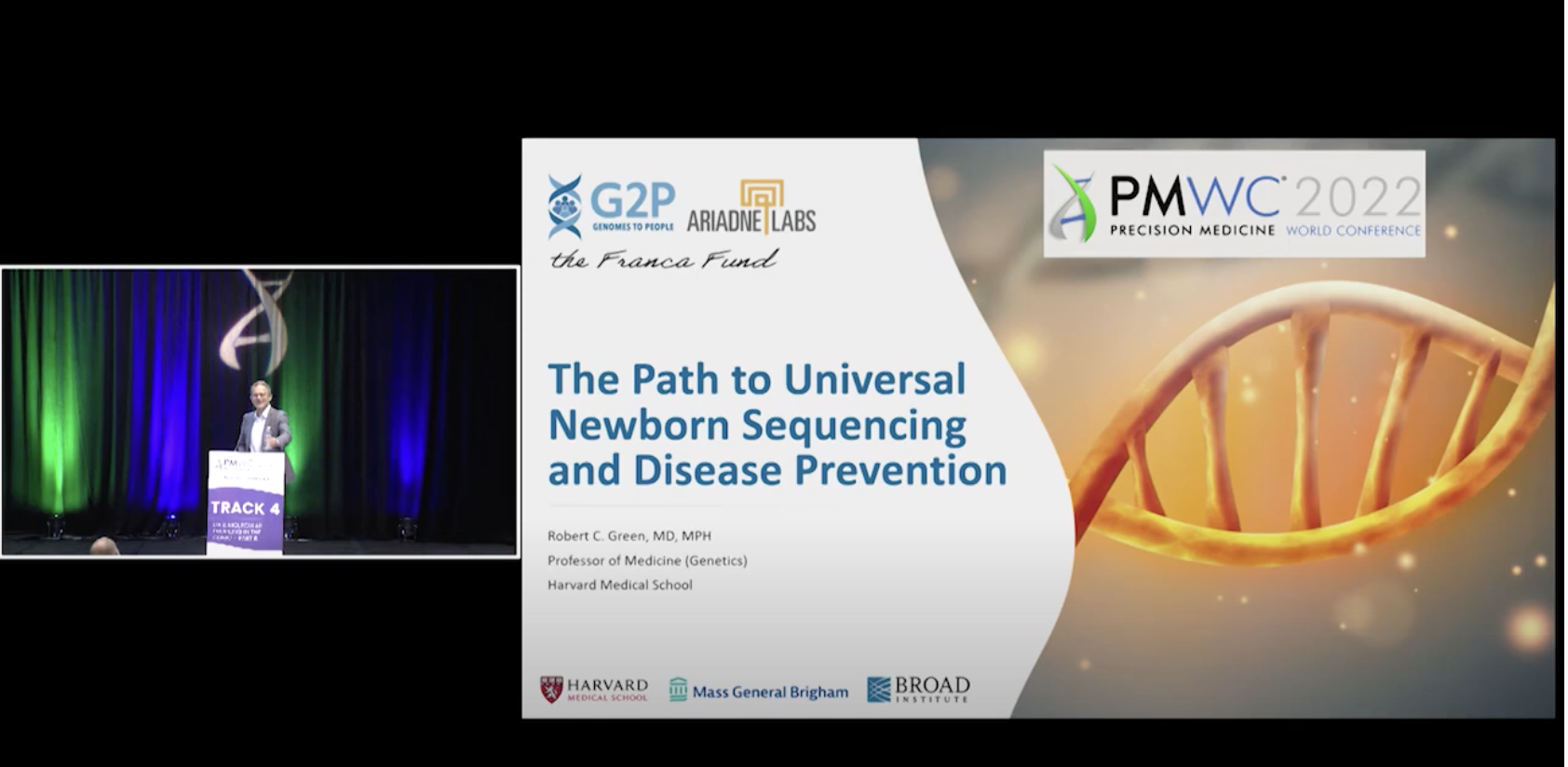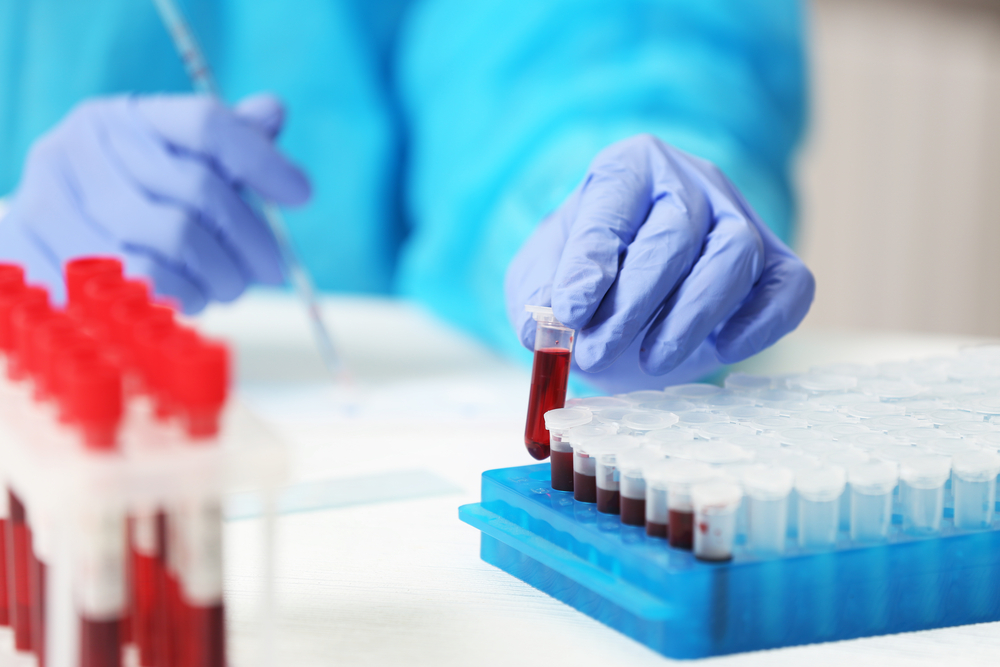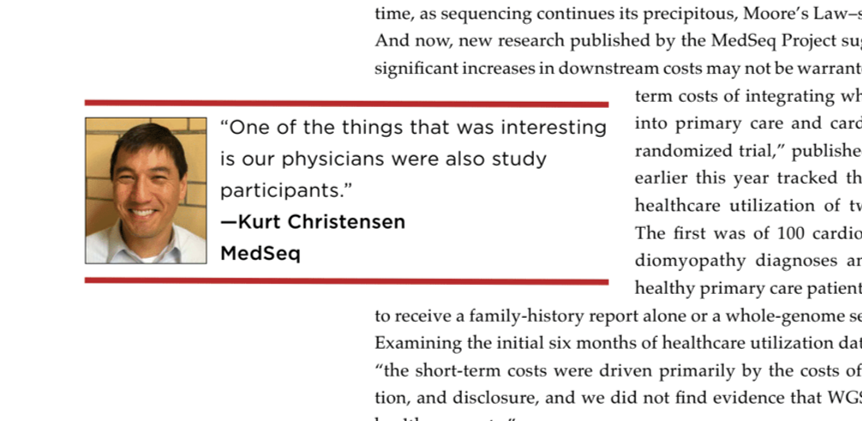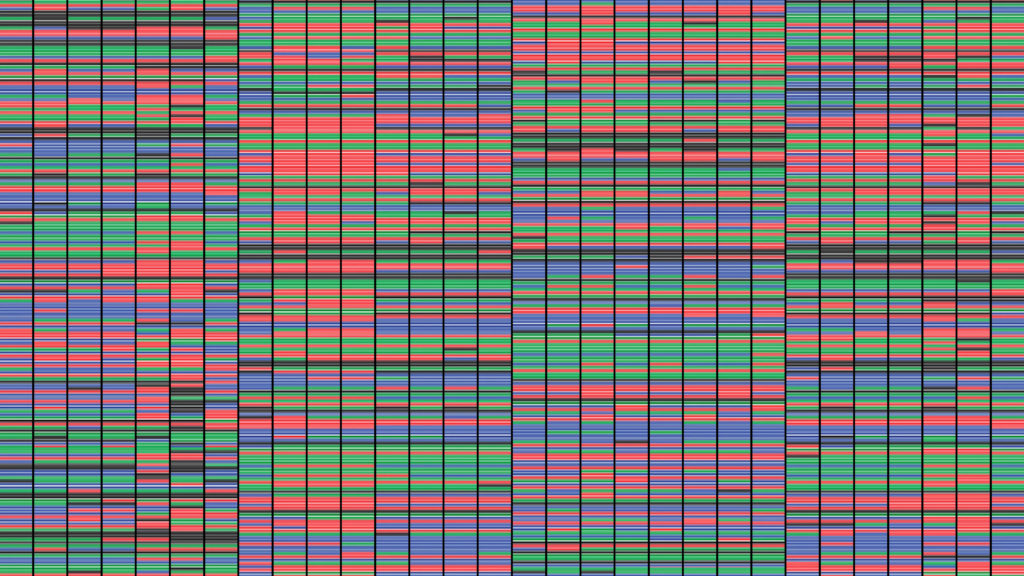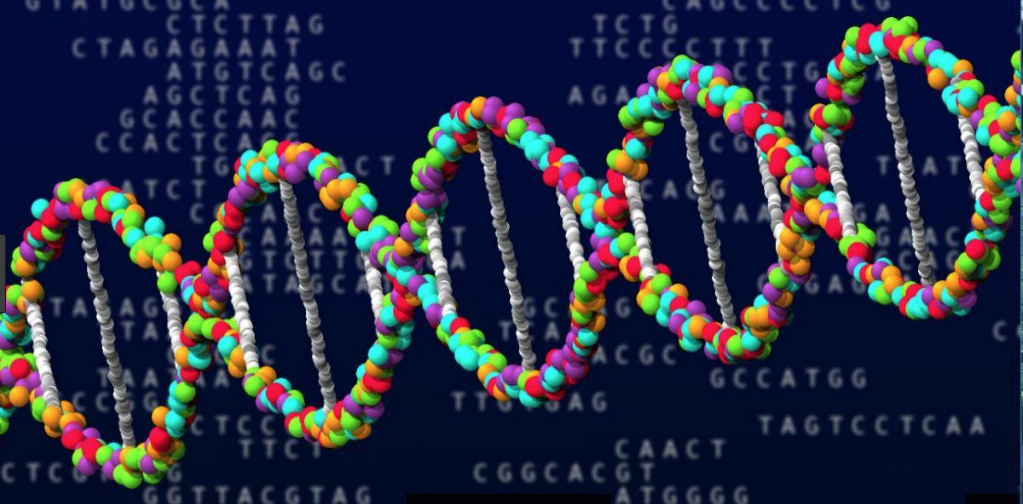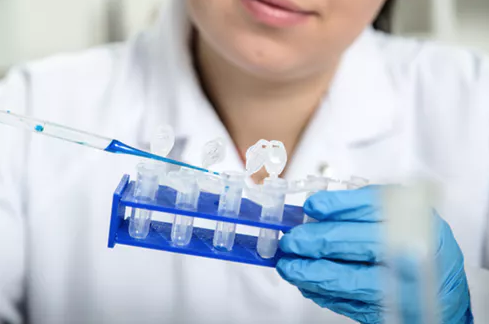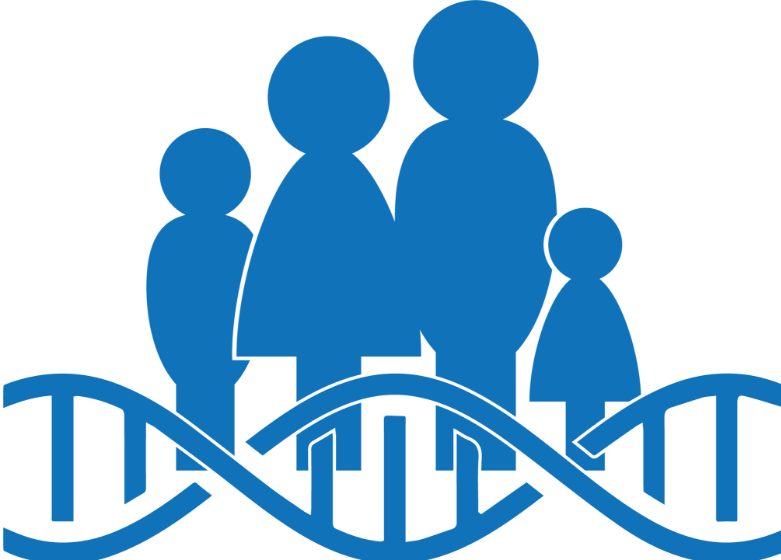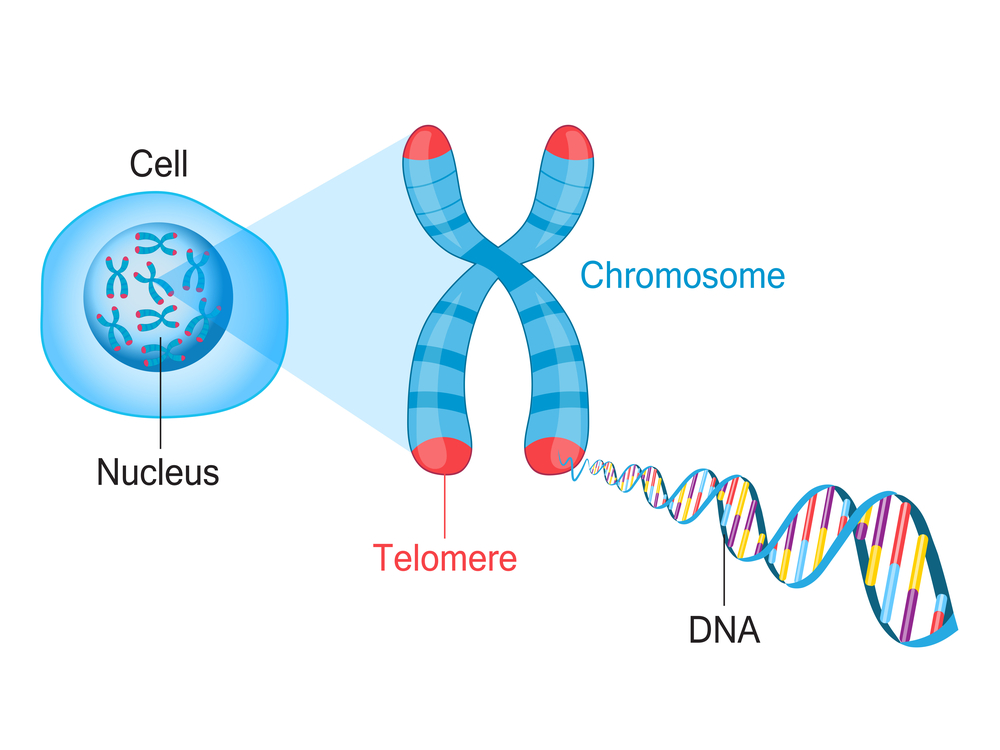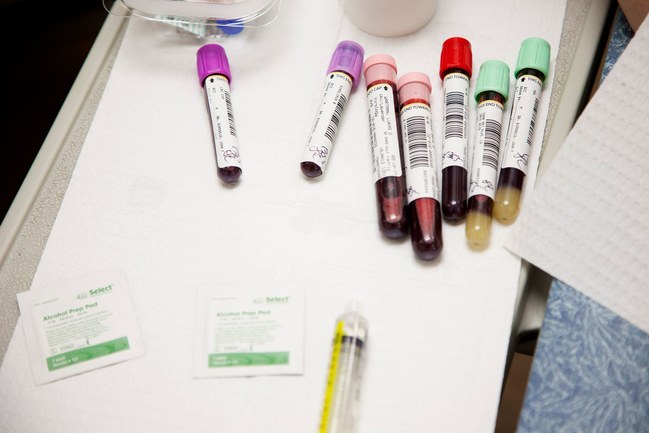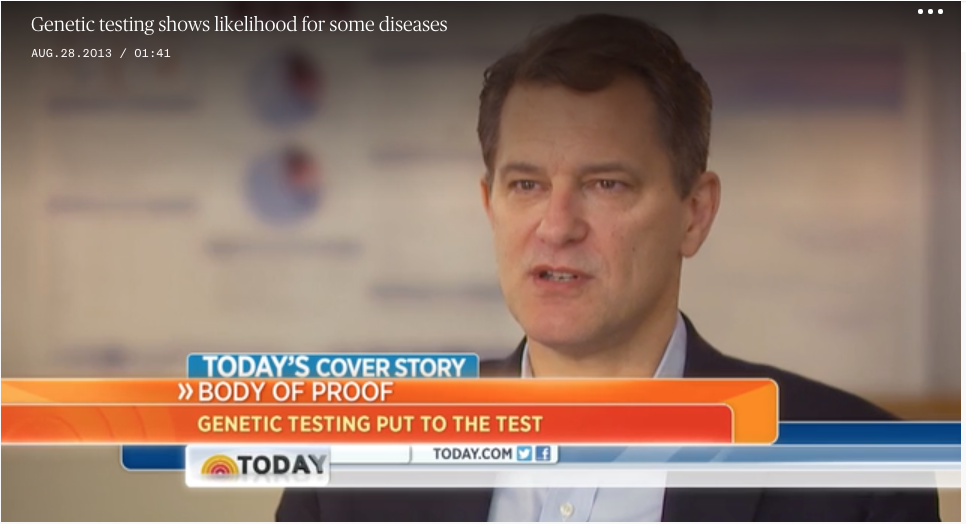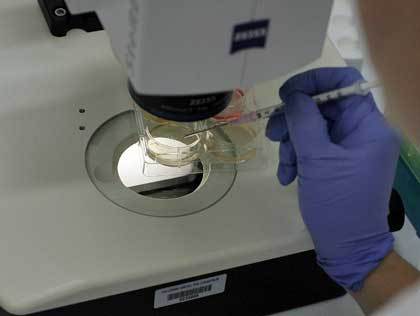Genome sequencing services are increasingly being utilized by physicians and their patients in both research and clinical settings. Developing standards and procedures for the use of sequencing information in clinical medicine is an urgent need with numerous obstacles to integrity and storage of sequencing data, interpretation, and responsible clinical integration. The MedSeq Project, funded by … Continued
News
First Person: Robert C. Green
Lifestyles Magazine
August 2024
Robert C. Green, MD, MPH writes a piece for Lifestyles Magazine on the promise of preventive genomics. Dr. Green draws on his experience researching preventive genomics over the past 20 years and his experience launching Nurture Genomics, a start-up delivering genome sequencing to newborns and children.
How Genomics Could Save Your Life
Medium
February 2024
In this blog post, Dr. Robert Green poses the question: “What’s holding us back from doing more with preventive genomics in medicine?” Drawing on his recent keynote talk at the Precision Medicine Network (PMNET) Forum in Riga, Latvia, Dr. Green explores near-term applications of precision medicine using genetic testing such as: newborn and childhood sequencing, … Continued
Newborn Screening and Genomics with Robert C. Green, MD, MPH
Ambry Genetics
August 2023
In this webinar Dr. Green explores the path towards a more personalized and preventive approach to medicine. He draws on insights gained from the MedSeq and BabySeq projects led by the Genomes2People Research Program (G2P).
The path to universal newborn sequencing
International Conference on Newborn Sequencing (ICoNS)
October 2022
At the inaugural International Conference on Newborn Sequencing, researchers from eight studies across the world outlined their plans, goals, and results to date for their newborn sequencing initiatives. The BabySeq Project led by Robert Green at Brigham and Women’s Hospital, the Broad Institute and Harvard Medical School was the first randomized clinical trial designed to … Continued
Revealing the hidden impact of whole-genome sequencing for newborns
New Scientist
August 2022
“Would you have your baby’s genes sequenced at birth? A groundbreaking trial that used whole-genome sequencing to predict newborns’ future health, is starting to reveal the impact it has had on the whole family, seven years down the line.”
Precision Medicine World Conference: The path to universal newborn sequencing and disease prevention
Precision Medicine World Conference
June 2022
PMWC, the “Precision Medicine World Conference” is the largest & original annual conference dedicated to precision medicine. At this year’s PMWC, G2P director Dr. Robert C. Green gave a talk on the path to universal newborn sequencing and disease prevention.
How frequently should genomic results be updated?
Medium
June 2019
Continuous new discoveries about the genome make updates important.
More than 10% of healthy people have monogenic risk variants
RareDR
December 2018
Robert Green, MD, MPH, the projects’ principal investigator suggests “These results are unexpected and exciting, suggesting that if we examine enough well-established, disease-associated genes, we will unearth monogenic risk variants in more than 10 percent of purportedly healthy individuals.”
BabySeq, MedSeq projects reveal how many people carry genetic risk variants for rare diseases
Brigham Women's Hospital
October 2018
More information on newborn and adult sequencing studies unveiled at the 2018 American Society for Human Genetics Meeting in San Diego, CA. Two projects in which healthy individuals have had their genomes sequenced have revealed that searching for unanticipated genetic results in newborns and adults can unearth far more variants associated with diseases than previously thought, … Continued
The true cost of whole genome sequencing
Medium
September 2018
The true costs of genome sequencing don’t end with the technical production of A’s, T’s, C’s and G’s, and they don’t even end with the molecular interpretation of a few dozen or even a few hundred genes.
Plenary presentation at the Advances in Genome Biology and Technology Precision Health Meeting
AGBT Precision Health Conference
September 2018
Dr. Robert C. Green speaks at the 2018 Advances in Genome Biology and Technology (AGBT) Precision Health Conference in San Diego, California about our efforts to gather empirical data on genome sequencing healthy individuals. Watch to learn more about G2P’s MilSeq, BabySeq, MedSeq, PeopleSeq, PGen and REVEAL projects. Click here for more on the conference.
MedSeq Project yields algorithm for extensive blood typing
GenomeWeb
May 2018
The bloodTyper algorithm developed with MedSeq data can be used to prevent serious complications and transfusion-related deaths.
Genome sequencing helps identify hundreds of blood type differences
ClinicalOmics
May 2018
Whole genome sequencing (WGS) can help identify rare blood-type donors and transfusion recipients who may be at risk of adverse reactions from red blood cell antigen mismatches.
New era for blood transfusions through genome sequencing
Brigham Women's Hospital
May 2018
Medical investigators have used data from the MedSeq Project to develop an effective computer program that can identify critical differences in individuals’ blood types with more than 99 percent accuracy.
Cost conscious: MedSeq Project provides snapshot to suggest genomic sequencing does not increase downstream healthcare costs
ClinicalOmics
May 2018
A study of two groups of 100 patients found no evidence that whole genome sequencing increases downstream healthcare costs. The story begins on Page 12.
Genome sequencing for healthy people: Will it be harmful?
Medium
March 2018
The second piece of a 2-part blog series authored by Dr. Robert C. Green. An early study found no problems related to unnecessary or harmful medical follow-ups after healthy people received their genome sequencing results. To read the first piece, visit: https://medium.com/@genomes2people/genome-sequencing-for-healthy-people-will-it-be-helpful-b984b94e3d3f
Sequencing patients’ genomes might not break the health care bank, study finds
Stat
March 2018
Findings in whole-genome sequencing don’t lead to excessive follow-up testing, an early study found.
Does genome sequencing increase downstream medical costs?
Brigham Women's Hospital
March 2018
“Whole genome sequencing is coming of age, but there’s fear that with these advancements will come rocketing health care costs,” said lead author Kurt Christensen, MPH, PhD, an instructor of medicine in the Division of Genetics at BWH. “Our pilot study is the first to provide insights into the cost of integrating whole genome sequencing … Continued
MedSeq Study finds whole-genome sequencing does not increase medical costs in the short term
GenomeWeb
March 2018
A pilot study found no significant increases in healthcare costs among people who received whole-genome sequencing results along with a family history report.
Genome sequencing for healthy people: Will it be helpful?
Medium
February 2018
The first piece of a 2-part blog series authored by Dr. Robert C. Green. Early results suggest that yes, whole genome sequencing may very well be substantially helpful to a significant number of healthy patients. To read the second piece, visit: https://medium.com/@genomes2people/genome-sequencing-for-healthy-people-will-it-be-harmful-d915cc08e634
Pick the right controversy- Robert Green
Front Line Genomics
July 2017
Everyone talks about generating the clinical utility data necessary to integrate genomics into healthcare, but no one has taken this to heart more, or generated more of it, than Dr. Robert Green.
Flagship results paper from the MedSeq Project published in Annals of Internal Medicine
Genomes2People
June 2017
A remarkable 22% of patients had new monogenic disease risks, previously unknown to them or higher than expected. instead of showing signs of nervousness and upset, the patients took the next step into seeing a physician to discuss what they could do about it.
Sequencing healthy patients reveals that many carry rare genetic disease risks
Brigham Press Release
June 2017
Integrating genome sequencing and other omics technologies into the day-to-day practice of medicine is an extraordinarily exciting prospect with the potential to anticipate and prevent diseases throughout an individual’s lifetime,” said senior author Robert C. Green, MD, MPH.
Preventative genome screening hot topic at ACMG meeting
GenomeWeb
March 2017
The MedSeq Project, conducted at Harvard Medical School and funded under the National Institutes of Health’s Clinical Sequencing Exploratory Research program, has been conducting a randomized controlled trial involving nine primary care physicians and 100 patients. Half of them were assigned to discuss their family history with their doctor, the other half to talk about … Continued
Nature Podcast
Acast
August 2018
Much of genetic mutation classification is still to be determined by researchers, but what they do know can potentially help many patients with hypertrophic cardiomyopathy in this specific study.
The flip side of personal genomics: When a mutation doesn’t spell disease
Scientific American
November 2016
How do you tell healthy people that they harbor lethal genetic variants? How does it affect their family or their overall health? Dr. Robert Green, director of the G2P research initiative, states that studying these variants is important because it gives some insight into how likely mutations are to affect increase risk of disease.
Will unanticipated genetic mutations lead to subsequent disease?
Brigham Women's Hospital
November 2016
A study published in the journal Science Translational Medicine is the first to show that mutations in certain cancer and cardiovascular genes put individuals at an increased risk for dominantly inherited, actionable conditions, regardless of family medical history. The study, carried out in two separate populations of African-Americans and European-Americans, finds that individuals carrying these … Continued
Actionable mutations in ACMG 56 genes linked to increase disease risk in general population
GenomeWeb
November 2016
Researchers are studying the ACMG 56 genes in order to understand the prevalence of these risky mutations and how likely they are to affect the general population. There is a wide spectrum regarding these mutations are still to be studied. This article explains the methodology and results that researches leading this study have found thus … Continued
Genome sequencing for healthy people: Is it time?
The Huffington Post
September 2016
A blog post authored by Dr. Robert Green discussing the benefits and challenges that people and health professionals are faced with when dealing with genetic testing and screening. Here, he addresses ethical issues and potential complications alongside beneficial factors that deal genome testing.
Exponential Medicine conference and the “Last Mile” problem in genomic medicine
Huffington Post
March 2016
The big question is how to make genomic information useful to patients and medical practitioners; Genomes2People is looking for answers through the MedSeq and BabySeq projects, among others.
Genomic sequencing: Just another tool in the doctor’s bag
Huffington Post
December 2015
Dr. Robert Green digs deeper into his one of his own projects, MedSeq. He explains the motivation behind the project, his hopes for what will be achieved, and how this study will lead to helping other doctors understand how genomics will help their patients individually.
Gedoe rond genen gaat niet meer weg
BioNieuws
November 2015
At ASHG, MedSeq researchers report limited impact of WGS on short-term medical care, costs
GenomeWeb
October 2015
Researchers study costs of integrating genetic sequencing into clinical care
Medical Xpress
October 2015
The cost of integrating genomic sequencing into clinical care seems to be a reasonable and attainable goal in the coming years. While there is still much to be taken into consideration, it could potentially be cost-effective.
Genetic counseling is rare among BRCA-tested women
Reuters
October 2015
Meeting with a genetic counselor is a crucial step before getting your genome sequenced because it allows patients to be more informed and prepared to hear and understand the results, especially with women who are being tested for the BRCA1 and BRCA2 gene.
How one family faced difficult decisions about DNA sequencing
Wall Street Journal
September 2015
When one family member of the Guisti family decided to get genetic testing, it set a domino effect for the entire family because of what was revealed within her genome.
Disrupting conventional wisdom in genomics
M3.com
September 2015
At genomics festival, Brigham & Women’s researchers discuss early findings from MedSeq
GenomeWeb
June 2015
The first crop of data from a study at Brigham & Women’s Hospital tracking how doctors understand and incorporate genomic sequencing results in their practice, shows that while they made some minor mistakes in communicating the data to patients, they learned and adapted to having this information as they would to any new tool.
The problem with precision medicine
The New Yorker
February 2015
Hospital execs: Obama’s precision medicine initiative would be “game changing”
Boston Business Journal
February 2015
NEJM article assesses effects of GINA on genetic discrimination and fear thereof
GenomeWeb
January 2015
Genomic technology enters the mainstream practice of medicine
Brigham Women's Hospital
June 2014
A review article titled, “Diagnostic Clinical Genome and Exome Sequencing” published in the The New England Journal of Medicine (NEJM), summarizes the technologies underlying CGES and offers insights for how clinicians should order such testing, interpret the results, and communicate the results to their patients.
DNA sequencer raises doctors’ hopes for personalized medicine
LA Times
January 2014
Genomics lead to a more personalized approach to medicine
Robb Report, Health & Wellness
January 2014
Integrating genomic sequencing into clinical care
The ASCO Post
September 2013
Should you get sequenced? Not all bad genes predict disease
NBC - The Today Show
August 2013
Researchers awarded $9.6-million to study whole genome sequencing in clinical settings
Brigham Women's Hospital
December 2011
“This study will build on the expertise and accomplishments of this remarkable scientific team to create and test novel methods for interpreting whole genome sequencing information and actually using that information in clinical medicine,” said Robert C. Green, MD, MPH.
Local researchers win grant for human genome
WBZ News Radio 1030 with Anthony Silva
December 2011




